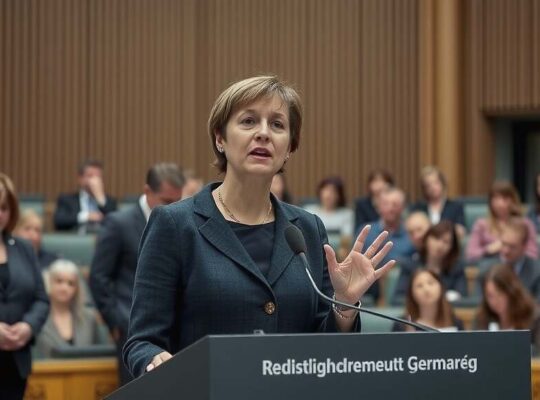Germany’s central bank, the Bundesbank, is calling for a comprehensive package of measures to address the country’s economic fragility, issuing unusually direct recommendations to the federal government. President Joachim Nagel, speaking at an event in Frankfurt, emphasized the need to reduce bureaucratic hurdles, actively promote skilled worker immigration, incentivize employment and make investments more attractive through tax incentives.
Further strengthening the nation’s economic resilience, Nagel underscored the importance of streamlining the energy transition and diversifying supply chains. While acknowledging the federal government’s recent initiatives – such as the “investment booster” allowing accelerated depreciation of equipment and the reduced electricity tax for industrial companies – Nagel stated that these steps are insufficient. Significant reforms are still required.
Addressing questions surrounding the decline in German exports, Nagel attributed the weakening not solely to factors such as US trade policies, Russia’s war in Ukraine, the energy crisis stemming from it, or the COVID-19 pandemic. He pointed out that Germany has been losing market share in international trade since 2017, suggesting deeper structural issues are at play.
Regarding monetary policy, Nagel reaffirmed his support for the recent decision by the European Central Bank (ECB) to maintain current interest rates. He advocated for a continued cautious approach, emphasizing the value of a data-dependent and session-by-session decision-making process.












